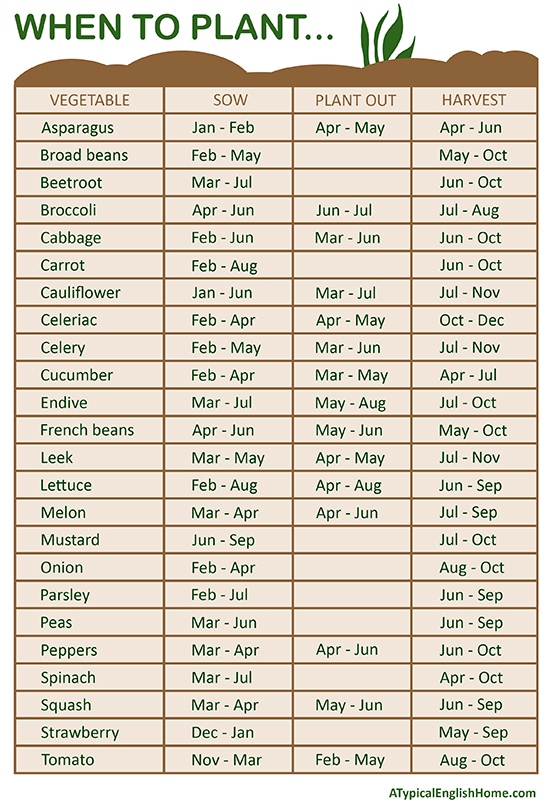Unlocking the Secrets: Optimal Vegetable Planting Times
Imagine biting into a sun-ripened tomato, bursting with flavor, plucked straight from your backyard. This garden dream hinges on one crucial factor: timing. Planting your vegetables at the optimal moment unlocks their full potential, yielding a bountiful harvest. Miss the mark, and you risk stunted growth, disease, and a disappointing yield. This guide delves into the intricate art of selecting the perfect planting window for your garden vegetables.
The quest for the ideal vegetable planting time is not new. For centuries, farmers and gardeners have observed nature's rhythms, attuning their planting schedules to the changing seasons. From ancient agricultural practices to modern scientific understanding, the pursuit of the perfect planting time has driven innovation and experimentation. This knowledge, passed down through generations, forms the foundation of our current understanding of when to plant specific vegetables.
Understanding the ideal planting schedule is crucial for maximizing your garden's output. Different vegetables have different temperature and sunlight requirements. Planting too early exposes tender seedlings to frost, while planting too late can result in insufficient time for the plant to reach maturity before the first frost arrives in the fall. The right planting time allows the plant to thrive, utilizing optimal growing conditions to produce a robust and healthy harvest.
Navigating the world of vegetable planting can be challenging. Regional variations in climate, microclimates within your garden, and the specific needs of each vegetable create a complex equation. Understanding these nuances is key to unlocking the secrets of a successful garden. This guide will equip you with the knowledge and tools to navigate these complexities and determine the perfect planting window for your unique situation.
One major issue related to determining the best planting time is the increasing unpredictability of weather patterns. Traditional planting calendars, while helpful, may not always align with the actual weather conditions in your area. Understanding how to adapt to these fluctuations and utilize tools like soil thermometers and weather forecasts is becoming increasingly important for successful gardening.
The optimal planting time refers to the period when environmental conditions, primarily temperature and sunlight, are most favorable for a specific vegetable to germinate, grow, and produce a healthy yield. For example, warm-season crops like tomatoes and peppers require consistently warm temperatures, while cool-season crops like lettuce and spinach can tolerate cooler temperatures and even light frost.
Benefits of planting at the optimal time include increased yield, improved plant health, and reduced pest and disease problems. Planting at the right time allows the plant to establish a strong root system, making it more resilient to environmental stresses and less susceptible to diseases. For example, planting tomatoes at the correct time allows them to develop a deep root system before the hottest part of the summer, reducing the risk of blossom-end rot.
To create a successful planting plan, start by identifying your region's last and first frost dates. Then, determine the specific temperature and sunlight requirements for each vegetable you plan to grow. Consult a planting calendar specific to your region or utilize online resources to determine the optimal planting window. Finally, consider using succession planting, staggering your planting times to ensure a continuous harvest throughout the growing season.
Advantages and Disadvantages of Timing Your Planting
| Advantages | Disadvantages |
|---|---|
| Increased Yield | Requires Careful Planning |
| Improved Plant Health | Can be Affected by Unexpected Weather |
| Reduced Pest and Disease Problems | Requires Knowledge of Specific Plant Needs |
Real-world examples: In warmer climates, tomatoes can be planted earlier in the spring, while in cooler climates, starting them indoors and transplanting them later is recommended. Similarly, cool-season crops like spinach can be planted in the fall in warmer climates for a winter harvest.
Challenges include unexpected late frosts or early heat waves. Solutions include using row covers to protect young plants from frost or providing shade during periods of intense heat.
FAQ: When should I plant tomatoes? The answer depends on your region's climate and the specific tomato variety.
Tips and tricks: Use a soil thermometer to ensure the soil has reached the optimal temperature for planting.
In conclusion, understanding the best time to plant garden vegetables is fundamental to a successful and rewarding gardening experience. By carefully considering the specific needs of each vegetable, your regional climate, and utilizing the tools and techniques outlined in this guide, you can unlock the full potential of your garden. Timing is everything in the garden. It determines the health, yield, and overall success of your vegetable crops. By embracing the principles of optimal planting times, you're not only maximizing your garden's potential but also connecting with a timeless tradition of working in harmony with nature. So, grab your gardening tools, consult your planting calendar, and embark on the rewarding journey of cultivating a thriving and bountiful garden.
Unlocking opportunities plug and play tech center careers
The hidden power of case sensitivity when matching uppercase and lowercase matters
Double the cuteness a guide to matching cute matching pfps














